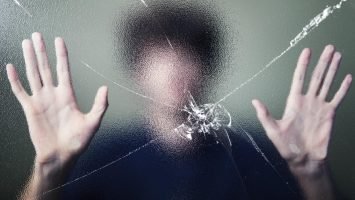Have you listened to Taylor Swift’s song Anti-Hero?
The song deals with anxieties, insecurities, and mental health. There are also strong references to narcissism. In this article I will point out different lyrics in Taylor’s song that show how narcissists can affect people in relationships.
If you live with a narcissist or have gone through a relationship with a narcissist you will identify with what I will talk about.
I’m the problem; it’s me.
One of the catchphrases from the chorus is “I’m the problem, it’s me.”
A narcissist would never say ‘I’m the problem’ — conversely, they will always say that you are the problem! When people are gaslighted by a narcissist, they’re continually told that they’re the problem and so they believe this to be the truth.
In a narcissistic relationship, you lose all kinds of faith and become unable to stand in your own values and your own truth. You are told lies and are being manipulated. That is the very definition and process of gaslighting. You don’t know your reality, your values, or your truth anymore. We consistently find that when people are being gaslit by narcissists, they will believe that they are the problem.
I have this thing where I get older but just never wiser.
Narcissists don’t self-reflect. They don’t learn from their mistakes. They continually re-offend and do the same things over and over again.
Narcissists constantly reinvent their lives after their behavior takes them to the point of destruction. They keep finding themselves alone after pushing everybody away by devaluing and discarding them.
Victims of narcissistic abuse also feel stagnated. They’re not growing in wisdom because they remain stuck in the same patterns of handing their power away. People who are stuck in narcissistic and toxic relationships tend to have this false hope that they can fix or change the other person, fully expecting that the relationship will get better.
Maybe if I do something differently this time. Maybe this is my fault. Maybe if I just go to therapy some more; maybe if I have better boundaries; maybe then the person I love will love me and change – become better, responsible, and loving.
When we’re with a narcissist and they’re not changing, we are getting older but not wiser. We haven’t accepted the truth that this relationship is toxic and abusive, this person isn’t taking any responsibility for their actions and feelings, they’re not self-reflecting, they’re never sorry, they don’t make amends and therefore they keep re-offending. If we stay with that, we’re definitely not getting wiser.
My depression works the graveyard shift.
For a victim of narcissistic abuse, depression is absolutely there, because you’re having the life force sucked from you. Narcissists are like vampires.
It’s important to understand that narcissists experience a great deal of depression because they really don’t love themselves. They cover up that they don’t have a strong sense of self. They put up a fake persona in front of other people.
It’s rare for a narcissist to admit that they’re depressed, because that would force them to admit that there’s something wrong with them. And good luck trying to convince them to seek professional help to get well and out of their depression.
Conversely, victims of narcissistic abuse will often admit that they’re depressed.
It’s important to note that there can be covert narcissists who will use their depression as their excuse for not going out to work, or for not taking responsibility for their life – while they’re mining and exploiting somebody else to take the responsibility for them. This type of parasitical covert narcissist will play the victim and say, “I’ve got chronic depression” and will do nothing about it.
Left to my own devices… I end up in crisis.
Taylor speaks about the helplessness of being “left to my own devices”, which leads to “I end up in crisis.” In the video clip, she’s drinking at night a couple of times, sitting on a roof and elsewhere. A real feeling of helplessness and powerlessness is pervasive.
When we are in a situation of being abused by a narcissist – not having yet detached and taken back ourselves, our spirit, and our soul – we try to ease the pain with addictive or self-medicating behaviors that are going to bring on even more crises.
I’ve been there, and unfortunately so have many people in my circle. My relationship with a covert narcissist led me to self-medicate with anti-anxiety pills. When the relationship ended so did my need for the pills.
Many people don’t understand the dynamics and the gaslighting of narcissistic abuse. They don’t understand that we try to regain our power through self-destructive acts in efforts to lift ourselves from helplessness and powerlessness.
No one should feel alone or outcast as they heal from toxic relationships or narcissistic abuse. We have established TAR Network™ to support victims as they speak their truth, share their experiences, and battle the shame and stigma associated with seeking help.
I’ll watch as you’re leaving ’cause you got tired of my scheming.
There is nothing worse than living a lie, where your true and authentic self is screaming to get out. That’s what being connected to a narcissist is like – victims make excuses for the abuse, insincerity, and lies perpetuated by the abuser in order to keep the trauma bond intact.
Intellectually, we know that the lies we tell ourselves are not right and we become powerless and helpless. We’re so trauma-bonded that we make up excuses and reasons that justify the toxic relationship. If we don’t address our trauma and work the steps for healing our Complex PTSD, even after the break up with a narcissist, we can remain stuck in this limbo for some time. That’s the painful truth.
Many of us – myself included – lied, schemed, and snuck around to see the narcissist while nobody was looking. We lied to family, friends, and maybe even our children to keep the trauma bond intact. We prioritized our addiction to a narcissist. Becoming a person of integrity and truth will enable us to heal our trauma and wounds.
When you’re speaking with friends and family about your relationship – emphasizing how wonderful they are, how much they’ve changed, and how it’s different this time – you’re really trying to convince yourself. If they really care about you, you’ll never be able to convince them.
All of the people I’ve ghosted.
When you pull back and stop making contact with a narcissist – to try to heal and save your own soul – the narcissist will accuse you of being a narcissist. They will accuse you of ghosting them. They will accuse you of the silent treatment.
On the other hand, your narcissist won’t allow you – directly or indirectly – to interact or spend any amount of time with your family and circle of friends. When I was in a toxic relationship, I stopped seeing my friends and even my family. I stopped traveling to visit my family. As soon as the relationship ended, I found my way back to my family and friends, and to this day I keep in close contact with them. No more ghosting or isolating!
Taylor’s video highlights some of the truths of narcissism, bringing them to the world to spread awareness. Where Taylor sings about being the “problem,” confessing her “scheming,” and placing blame and shame on herself is highly consistent with people who have been abused by narcissists. They have developed their gaslighting skills to insurmountable levels, forcing us to take the responsibility for every failure in our relationships. It’s no wonder that we retreat into the fog of cognitive dissonance for respite.
I hope her song has given you a greater understanding about the truth and the power that we have inside of ourselves – to be able to walk out of the mess and create a boundary of no contact. We can separate ourselves from the madness and come to a place where true healing can be accomplished.
For those who have suffered from narcissistic abuse, it is important to practice self-compassion. It will help you to heal.
Remind yourself that how someone treats you is not your fault. Reward yourself for finally getting to a place where you can heal and get out of the situation. Recognize and ackowledge the signs that you’re healing from narcissistic abuse as you see them. Above all, be proud of how far you’ve come. One day, you’ll find that you’re able to forgive yourself, instead of judging yourself for the past. Remembering that you’re strong, that you deserve love, and that you’re brave for getting out of the relationship, can all help you heal.
Please remember that you are not alone in this. We welcome you to visit our website – www.TARNetwork.org – where you can interact with like-minded people who understand what you’ve gone through and where you are right now. You can also share your survival story via TAR Tales.
Any form of abuse is unacceptable. You deserve to be surrounded by loving, positive, nurturing people. If you’ve recently gotten out of a toxic relationship, identifying signs that you’re healing from narcissistic abuse can motivate you to keep going. Professional help, support from loved ones, and a focus on self-care will provide the necessary tools for you to heal, and that’s a pretty good place for you to start.







